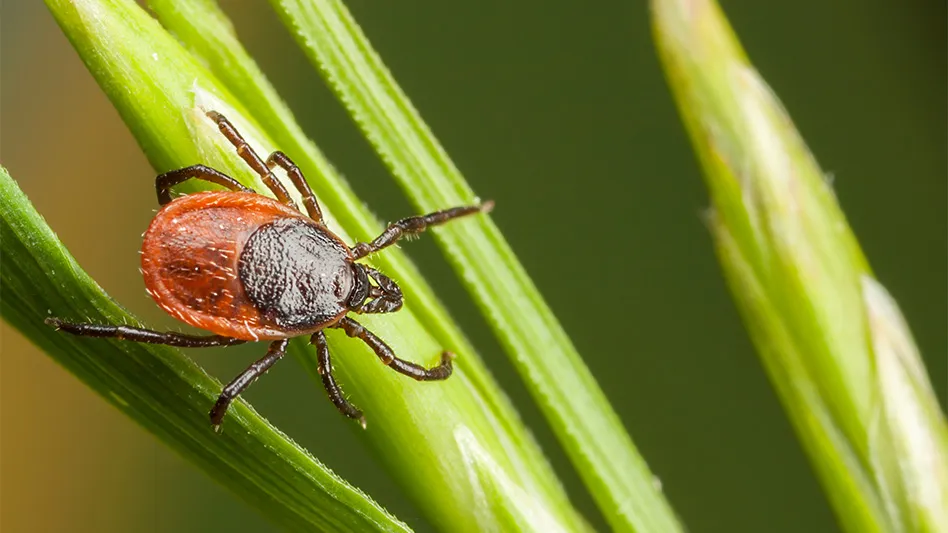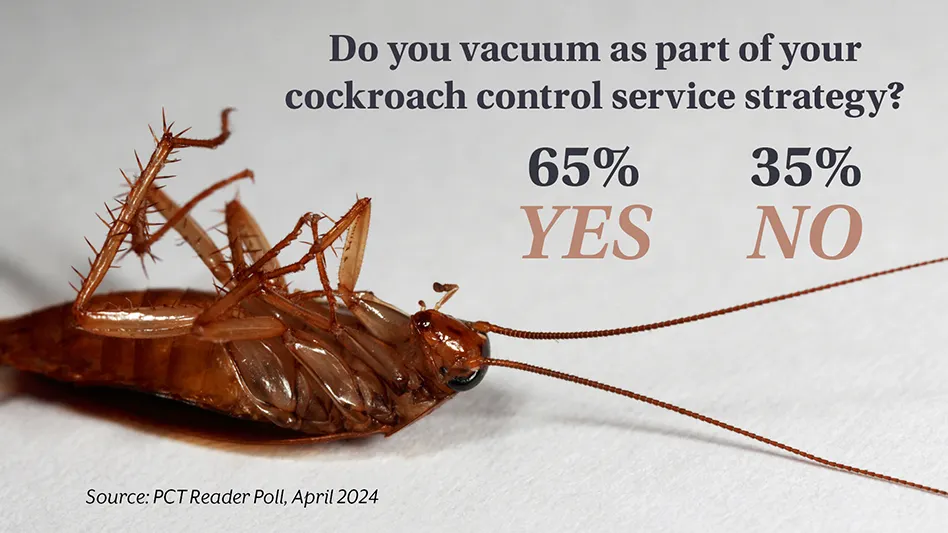Q. I realize this sounds vague, but we are continuing to see cockroaches in our restaurant accounts. We see them mostly in the kitchen, but also in dining areas. We have used everything on the market. (No kidding.) Is there anything that really works? (J.B.)
A. I know how frustrating it can be to think that nothing you are using works effectively for the control of cockroaches. My response to your question may not be exactly what you want to hear, but I believe that my years of experience have taught me one or two things about why cockroaches persist in restaurant accounts.
First, to quote a comment made by University of California Riverside researcher Don Reierson at a recent Whitmire symposium, "Cockroach control is hard, boring work." I would add that it is also very dirty work. Crawling around in kitchens on your back to get up under equipment can be very dirty. It goes without saying that if a service person is not working hard and getting dirty in these types of accounts, then that may in fact be the reason for continuing cockroach activity.
Also, the truth of the matter is that working by yourself in complex environments can get boring. I believe it is a challenge to pest control managers, including supervisors and trainers, to make the craft of cockroach management more exciting and fulfilling. It will only become boring if the person doing the work does the same tasks over and over, does not get the chance to implement problem-solving skills, or does not have at his disposal a variety of tools and techniques to overcome difficult situations.
A common mistake people in management positions often make is to assume cockroach control materials have been used correctly. Often, the wrong formulation is selected. Even active ingredients that are highly water-soluble are sometimes used in very wet environments. Products that tend to be rendered ineffective by grease and oils are sometimes relied upon to provide control in these contaminated environments. Just because someone tells you they used something does not mean they used it correctly.
There has been a trend over the last several years to use large amounts of pyrethrin in restaurants for cockroach control. Pyrethrin can be used correctly or incorrectly. Those who depend on it ex clusively are probably using it incorrectly. Pyrethrin can be a powerful tool for finding cockroaches. Through directed contact treatments, cockroaches can even be eliminated if the formulation is appropriate. Otherwise, blind reliance on pyrethrin and the inappropriate use of it does nothing more than create the same situation that occurred in the mid-1970s when "fogging" was all the rage. The pest control industry was harvesting cockroaches during that time, not controlling them. Remember what they say about history repeating itself.
One of the most common problems I have seen recently involves errors in treatment technique. It is my sense that not enough emphasis is being given to how to place insecticides properly in given environments. Again, there is an assumption that all service people know how to properly treat cracks and crevices or voids, or how to make spot applications or general applications or space applications, or when and where to do it appropriately. Not many of the state and local training programs I have seen recently even addresses how to do pesticide applications. They frequently tell you what to do it with and where to do it, but not how to do it.
In the final analysis, cockroaches continue to survive in accounts usually because someone missed a spot where they were residing. Whether this was due to carelessness, boredom, laziness, or lack of training is debatable. I'm sure all apply in some cases. If you are currently unsatisfied with the level of control your service technicians are achieving in any type of account, my recommendation is to get out of the office and get into the service vehicle. Go not as a judge but as a trainer. Invest some time in developing your employees. It will pay off more than you can imagine.
PCT contributing editor Jeffrey Tucker is a Houston, Texas-based pest control consultant.

Explore the April 1995 Issue
Check out more from this issue and find you next story to read.
Latest from Pest Control Technology
- Ground Control
- Scientists, PMPs Collaborating to Map Termite Distribution in Southern U.S.
- Viking Pest Control Organizes a Charity Bike Build for Local Families
- Gaining Control of Structure-Infesting Carpenter Ants
- Big Blue Bug’s Brian Goldman Receives Rhode Island Small Business Person of the Year Award
- UF Researchers Examine How Much Bait it Takes to Eliminate a Subterranean Termite Colony
- Women in Pest Control Group Continues to Grow, Provide Opportunities in the Industry
- NPMA Announces Results of 2024-2025 Board of Directors Election





